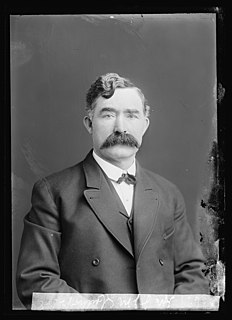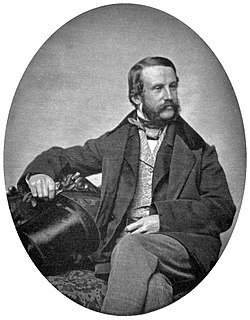A Quote by Henrik Ibsen
It is inexcusable for scientists to torture animals; let them make their experiments on journalists and politicians.
Quote Topics
Related Quotes
Politicians, real-estate agents, used-car salesmen, and advertising copy-writers are expected to stretch facts in self-serving directions, but scientists who falsify their results are regarded by their peers as committing an inexcusable crime. Yet the sad fact is that the history of science swarms with cases of outright fakery and instances of scientists who unconsciously distorted their work by seeing it through lenses of passionately held beliefs.
So far as this argument is concerned nonhuman animals and infants and retarded humans are in the same category; and if we use this argument to justify experiments on nonhuman animals we have to ask ourselves whether we are also prepared to allow experiments on human infants and retarded adults; and if we make a distinction between animals and these humans, on what basis can we do it, other than a bare-faced - and morally indefensible - preference for members of our own species?
Typically, defenders of experiments on animals do not deny that animals suffer. They cannot deny the animals' suffering, because they need to stress the similarities between humans and other animals in order to claim that their experiments may have some relevance for human purposes. The experimenter who forces rats to choose between starvation and electric shock to see if they develop ulcers (which they do) does so because the rat has a nervous system very similar to a human being's, and presumably feels an electric shock in a similar way.
People tend to care about dogs because they generally have more experience with dogs as companions; but other animals are as capable of suffering as dogs are. Few people feel sympathy for rats. Yet rats are intelligent animals, and there can be no doubt that rats are capable of suffering and do suffer from countless painful experiments performed on them. If the army were to stop experiments on dogs and switch to rats instead, we should not be any less concerned.
We enslave, torture and then slaughter animals to eat them, then when we eventually become sick from that we enslave, torture and kill more animals in laboratories in the hopes of creating drugs to enable us to continue with our animal-abusive lifestyle! Few of us look to the future (i.e., to our parents and grandparents), see the effects of an omnivorous lifestyle, and opt out of it before it makes us sick.
I don't know about torture. I have educated myself on many things but on torture I have not known the boundary between what is torture and what isn't torture. I know the NRA tie these people (rebels, etc.) when they catch them. They tie their hands backwards. I am now being told that is torture. It is the traditional method.
Every discoverer of a new truth, or inventor of the method which evolves it, makes a dozen, perhaps fifty, useless combinations, experiments, or trials for one successful one. In the realm of electricity or of mechanics there is no objection to this. But when such rejected failures involve a torture of animals, sometimes fearful in its character, there is a distinct objection to it.
I was asked by the National Institute of Health to be their scientific discussant on the effects of these drug [Ritalin] at a big conference they held. Beforehand, I reviewed all of the important literature on the issue. Even with experiments on animals. When they're given these drugs they stop playing; they stop being curious; they stop socializing; they stop trying to escape. We make good caged animals with these drugs. And we make good caged kids by knocking their spontaneity out of them. And, Michael, the other thing is that these drugs enforce obsessive behavior.
Scientists have been saying, for an awfully long time, that we're all interconnected. Scientists would use the word 'ecosystem' to express that idea. Obviously, people can't survive without air and water, and we rely on plants and animals for food, and plants and animals rely on us to preserve their habitats.





































